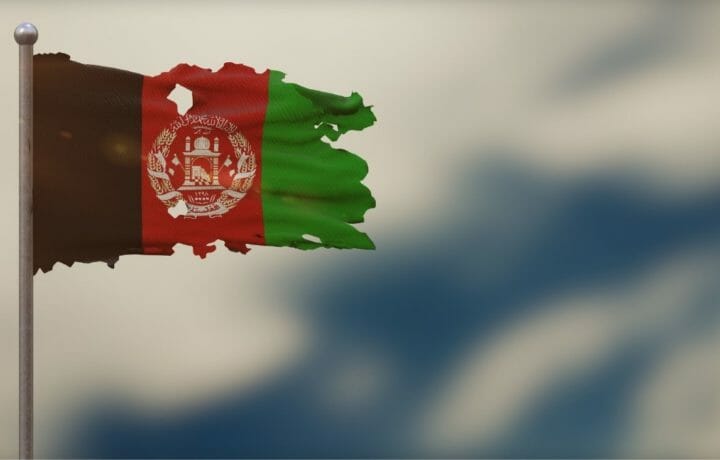As the United Nations Human Rights Special Rapporteur for Afghanistan makes his first visit to the country in this role, the Taliban-Haqqani terror regime slam the door shut on human rights—again.
As Richard Bennett travels the country and meets with the leaders of the illegal regime to ask them about human rights allegations, the Taliban prepared for talks by closing down key Afghan organizations that existed to make peace and protect human rights. This week, the Taliban-Haqqani regime shuttered five more institutions:
- The Independent Human Rights Commission
- The Parliament
- The National Security Council
- The High Council for National Reconciliation
- The Oversight Commission for the Implementation of Constitution
As Afghan Ambassador to Sri Lanka M. Ashraf Haidari rightly described it, saying these are “Sadly, [the] last nails on the coffin of democracy by Taliban.”
The World Reacts
In response to the latest erasure of democracy and human right vestiges in Afghanistan, the global diplomatic community has announced their displeasure in this move in a series of public statements. Jasper Wieck, the German Special Representative to Afghanistan and Pakistan said, “Dissolution of key institutions in Afghanistan is another blow to human rights, rule of law & national reconciliation. It makes the path more difficult towards an inclusive & stable future that the Afghan society wants & needs.”
Tomas Niklasson, the Special Envoy of the European Union for Afghanistan said, “The decision by the Taliban to dissolve key institutions in #Afghanistan sends a worrying message when it comes to dialogue, human rights and national reconciliation. All very much needed and in demand after decades of conflict and war.”
Ambassador von Brandt, Ambassador and Head of Delegation of the EU to Afghanistan said, “National #Humanrights institutions, modelled on the #ParisPrinciples are the bridge to the outside world. Those bridges are being increasingly destroyed. This excludes #Afghanistan from universally agreed rights and principles and is also strange for a country which relies heavily on international #foodaid and support.”
Rina Amiri, the U.S. Special Envoy for Afghan women, girls, and Human Rights office of global women’s issues, has yet to say anything at all, and has not made any statements in five days. Afghan women are watching and waiting for her verbal support and outrage on social media.
Afghans meanwhile wonder if these diplomats understand that their words do not matter. To summarize the response from Afghans. Terrorists do not respect the human rights of anyone outside their death cult. While diplomats mention their discomfort with the brutality of the regime, the Haqqani-Taliban terror leaders continue to kidnap and murder their supposed enemies, and at Afghan colleges Islamists are stopping women from attending classes for wearing the “wrong-colored” hair coverings.
What can be done
Repeatedly, Afghans and their supporters are echoing some simple steps that will stop empowering the terrorists and start to move the regime towards building a more inclusive governance.
First, all diplomats can end public meetings with the regime. There is nothing stopping diplomats from requesting meetings be held over zoom or in neutral spaces where no cameras are allowed. The Taliban-Haqqani Regime is using images and video from the meetings with other nations and with journalists to softly and slowly increase their recognition as a government and to increase their ability to stifle opposition. Never willingly aid a terrorist’s propaganda campaign.
As Annie Pforzheimer a former U.S. Deputy Chief of Mission in Kabul suggests, now is the time for the UN to stop Taliban-Haqqani foreign travel. “To some, allowing the Taliban to travel outside Afghanistan might seem a small concession. But it represents the creeping normalization of international relations with a regime that overthrew a constitutional republic and an official ally of the U.S., has murdered our allies and stolen the rights of its people and — most relevant in this case — is still openly cooperating with other terrorists.”
Finally, the diplomats should be working to get every Muslim-majority nation involved in pressuring the regime to reverse their human rights violations in the name of Islam. The Haqqani-Taliban regime see their political and social movement as a religious one. As evidenced in the “vice-police” response to a journalist who saw Taliban harassing women in Kabul, “It is not the decree of the ministry, it is the decree of God. The real cause of moral corruption is the face. If the face is not covered, then what is the point of Hijab?” Unless everyone counters these incorrect interpretations of Islam, the Taliban-Haqqani regime will not change.




